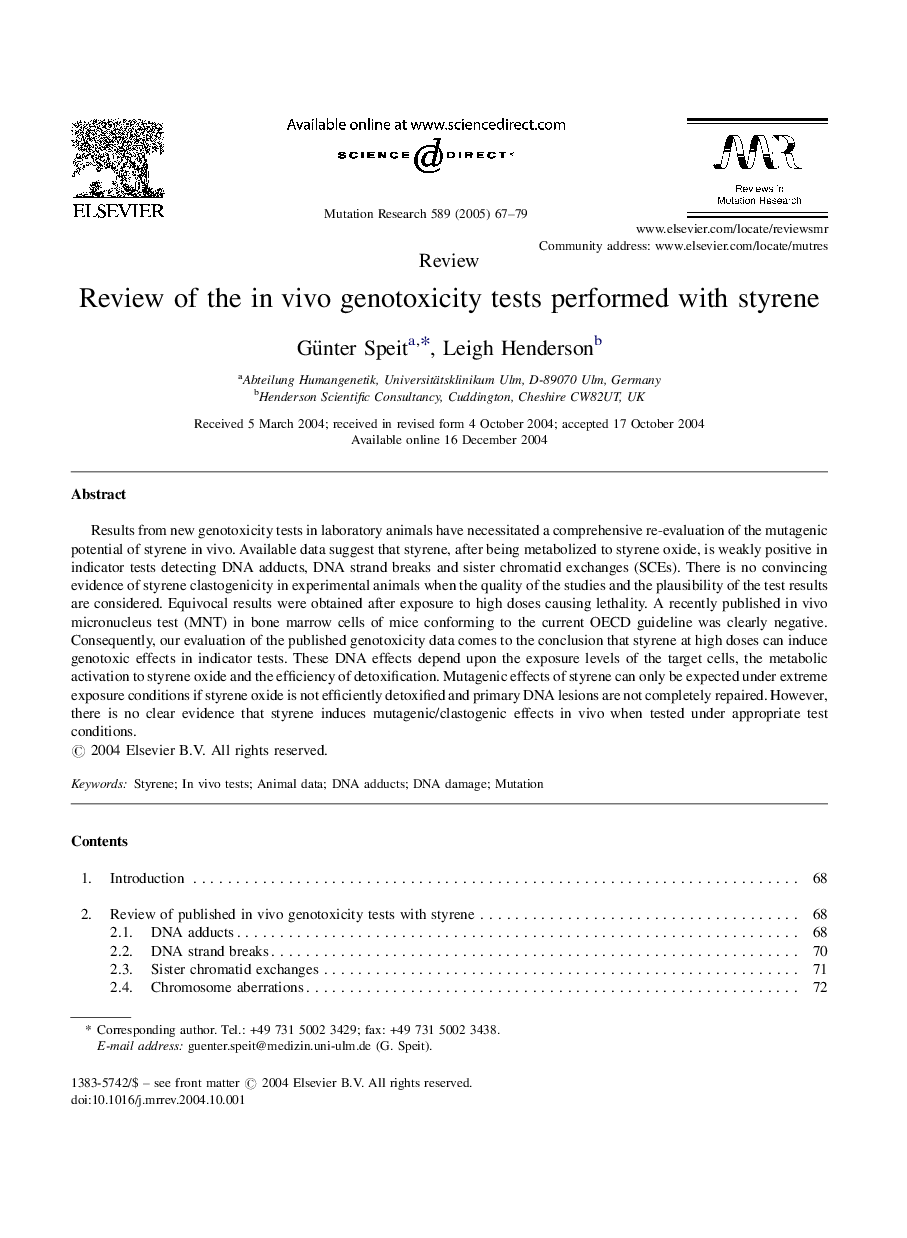| Article ID | Journal | Published Year | Pages | File Type |
|---|---|---|---|---|
| 10915298 | Mutation Research/Reviews in Mutation Research | 2005 | 13 Pages |
Abstract
Results from new genotoxicity tests in laboratory animals have necessitated a comprehensive re-evaluation of the mutagenic potential of styrene in vivo. Available data suggest that styrene, after being metabolized to styrene oxide, is weakly positive in indicator tests detecting DNA adducts, DNA strand breaks and sister chromatid exchanges (SCEs). There is no convincing evidence of styrene clastogenicity in experimental animals when the quality of the studies and the plausibility of the test results are considered. Equivocal results were obtained after exposure to high doses causing lethality. A recently published in vivo micronucleus test (MNT) in bone marrow cells of mice conforming to the current OECD guideline was clearly negative. Consequently, our evaluation of the published genotoxicity data comes to the conclusion that styrene at high doses can induce genotoxic effects in indicator tests. These DNA effects depend upon the exposure levels of the target cells, the metabolic activation to styrene oxide and the efficiency of detoxification. Mutagenic effects of styrene can only be expected under extreme exposure conditions if styrene oxide is not efficiently detoxified and primary DNA lesions are not completely repaired. However, there is no clear evidence that styrene induces mutagenic/clastogenic effects in vivo when tested under appropriate test conditions.
Related Topics
Life Sciences
Biochemistry, Genetics and Molecular Biology
Cancer Research
Authors
Günter Speit, Leigh Henderson,
